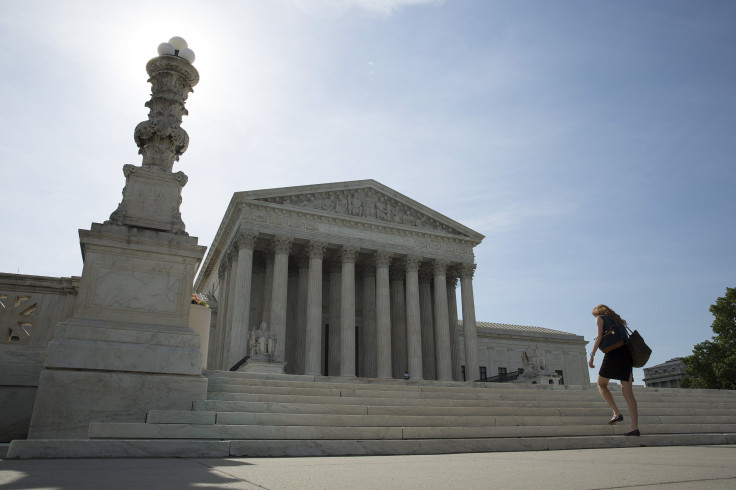'Abstract' Software Patents Invalidated By Supreme Court In Latest Decision

The U.S. Supreme Court ruled on Thursday that software based on an abstract idea doesn’t qualify for a patent. But the ruling stopped shy of invalidating all software patents.
Supreme Court justices unanimously ruled to invalidate a patent brought to court through the case of “Alice Corporation Pty. Ltd. v. CLS Bank International,” a court case that has been closely watched by technology companies such as Apple Inc. (NASDAQ:AAPL), Google Inc. (NASDAQ:GOOG) and Microsoft Corp. (NASDAQ:MSFT).
The patents involved in the lawsuit brought against Alice Corporation Pty. Ltd. claim to “facilitate the exchange of financial obligations between two parties by using a computer system as a third-party intermediary.”
Supreme Court Justice Clarence Thomas delivered the court’s opinion on Thursday:
“We hold that the claims at issue are drawn to the abstract idea of intermediated settlement, and that merely requiring generic computer implementation fails to transform that abstract idea into a patent-eligible invention,” Justice Clarence Thomas said.
Justice Thomas further explained the court’s opinion against the patent:
“Stating an abstract idea while adding the words ‘apply it’ is not enough for patent eligibility. Nor is limiting the use of an abstract idea ‘to a particular technological environment.’”
However, the Supreme Court’s unanimous decision doesn’t invalidate all software patents.
“An Invention is not rendered ineligible simply because it involves an abstract concept,” Justice Thomas said. Patents that pose no risk of pre-emption “remain eligible for the monopoly granted under our patent laws,” he added.
Software patents have been a contentious issue in the software and technology industry in recent years due to patent trolls, or companies that use patents to squeeze royalties out of alleged infringers without actually manufacturing or providing any services with said patents. Though, in recent years companies such as Newegg have fought back against trolls with much success.
While the court unanimously decided to invalidate the patent, Justice Sonia Sotomayor with the support of Justice Ruth Ginsburg and Justice Stephen Breyer voiced an additional opinion against business process patents as a whole:
“I adhere to the view that any claim that merely describes a method of doing business does not qualify as a process under §101.”
© Copyright IBTimes 2025. All rights reserved.






















